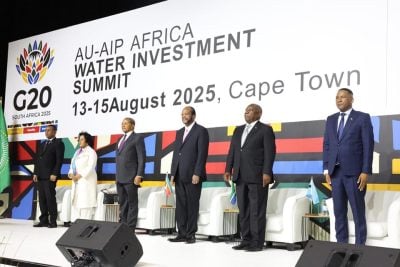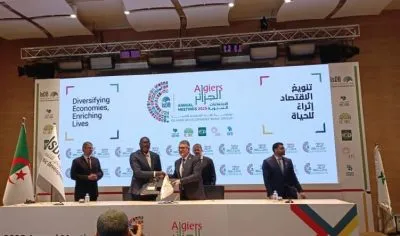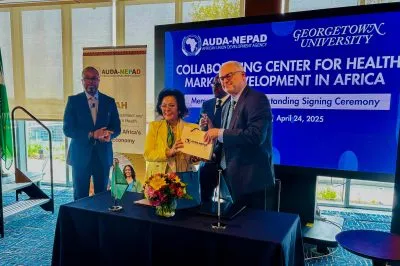This article was produced with the support of Africa Finance Corporation
In its quest to support projects that can withstand the shocks of climate change, deliver reliable infrastructure services to people and enterprises, and offer attractive returns to investors, Africa Finance Corporation has established AFC Capital Partners (ACP). This is a wholly-owned subsidiary of AFC that will raise and manage funds from third-party investors to finance climate resilient infrastructure in Africa.
Climate change, such as rising temperatures, infrequent precipitation patterns and flooding, is threatening existing, and crucially yet-to-be-built, infrastructure in sub-Saharan Africa – a region already challenged by infrastructure low in quantity, quality, and accessibility. The continent faces significant physical climate risks, that necessitates all new and existing infrastructure must factor in climate resilience and adaptation measures. The resilience measures will not only reduce losses and damages, but most importantly contribute to profitability, sustainability, and longevity of these assets. ACP’s inaugural $750m Infrastructure Climate Resilient Fund (ICRF) is uniquely designed to drive investments in climate-resilient infrastructure projects which are planned, designed, built and operated in a way that anticipates, prepares for, and adapts to changing climate conditions.
According to a recent study by McKinsey, there is currently a $2.3 trillion infrastructure gap on the African continent, in which over 80% of the gap is in the transport and power sub-sectors. With a widening infrastructure gap, the imminent climate risks also heighten pre-existent investment barriers thereby putting at risk Africa’s economic growth and development. AFC – which in 15 years has become one of the leading infrastructure-focused development finance institutions (DFIs) operating in Africa – is adopting a new strategic direction towards climate resilient infrastructure. A key pillar of this strategy is the establishment of AFC Capital Partners (ACP), which has launched its inaugural product in the form of the Infrastructure Climate Resilient Fund (ICRF). Ayaan Adam, the Senior Director and CEO of ACP, is at the forefront of this strategic shift. She possesses extensive global experience spanning 28 years of investment and sustainable finance covering Africa, Asia, Latin America and Eastern Europe, bringing proven experience in climate finance, infrastructure, private equity, and financial institutions.
She has a strong vision for building a sustainable and prosperous future for Africa and believes that climate resilient infrastructure is not only a necessity, but also an opportunity for growth. In an exclusive interview with African Business, she explains that ICRF is keen on shifting the narrative and making resilient infrastructure the way to go for Africa and the world, “to ensure that it can withstand the shocks of climate”.
Blended capital model to lower risk
Ayaan explains that ICRF has a blended capital model that pools concessional financing together with commercial capital from institutional investors to improve the fund’s overall risk return profile. “We designed the product in such a way that we would have a third of our capital from the largest concessional investor, which is the Green Climate Fund (GCF),” she notes, adding that ICRF had already mobilised $240m in junior equity commitment from the GCF. The catalytic concessional capital from the GCF in the form of first loss junior equity will support the integration of climate resilience in infrastructure investments and de-risk the mobilisation of capital from commercial investors such as pension funds, insurance companies, sovereign wealth funds, foundations, and development finance institutions.
“The idea is that the GCF’s capital will support the incremental cost of making this infrastructure resilient and also provide a first loss risk protection so that we can mobilise another $500m from private investors on the continent as well as abroad.”
“We have the climate money, now we are going for the commercial money,” she states. She expresses confidence that ICRF is an appealing proposition for international and domestic investors due to its compelling risk profile that – besides the aforementioned concessional capital from the Green Climate Fund – also includes grant funds for technical assistance on projects.
Ayaan discloses that the fund has around $10m in grant funds for technical assistance that could be used to facilitate initial work with regulators and governments, as well as finance some design and development aspects of climate resilient infrastructure projects. This will be key in further de-risking projects and enhancing bankability, which is a perennial challenge in Africa’s infrastructure sector.
 Sign in with Google
Sign in with Google 



